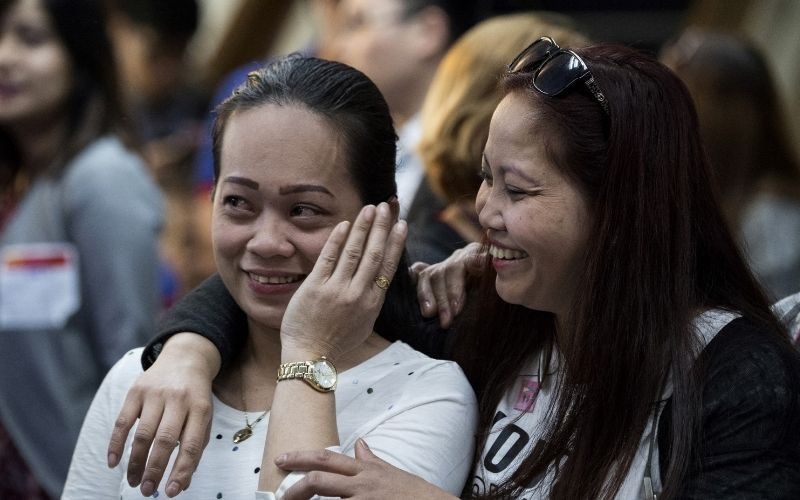Supreme Court: SSS requirement for OFW clearance unconstitutional

MANILA, Philippines — The Supreme Court has declared unconstitutional the requirement for land-based overseas Filipino workers to pay Social Security System contributions before they can receive their Overseas Employment Certificates.
In a decision promulgated on Nov. 5, 2024, the SC en banc partly granted the petition filed by Migrante International and other groups, striking down Rule 14, Section 7(iii) of the Implementing Rules and Regulations (IRR) of the Social Security Act of 2018.
Assailed provision. The invalidated rule required land-based OFWs in countries without bilateral labor agreements with the Philippines to pay both employer and employee shares of social security contributions—amounting to P2,400 monthly—before receiving their OECs.
Without an OEC, which serves as an exit pass, OFWs are unable to leave the country for work. Sea-based OFWs, by contrast, pay only up to P800 monthly.
Petitioners argued that this provision was oppressive and discriminatory, violating OFWs’ constitutional rights to travel and due process.
They also pointed out that foreign employers often fail to fulfill their share of SSS contributions, leaving OFWs to shoulder the financial burden.
The Supreme Court's ruling
The SC decided that requiring advance SSS payments as a condition for issuing OECs is “unduly oppressive, unreasonable, and repugnant to the Constitution.”
It said that such a requirement undermines the mandate to protect overseas workers’ rights and welfare.
The court added that since the primary purpose of a land-based OFW’s travel abroad is to work, requiring them to pay their SSS contributions in advance to obtain their OEC effectively deprives them of their right to travel and, consequently, their livelihood.
The restriction does not serve national security, public safety or public health interests but is primarily aimed at enforcing contribution collection, it stated.
The SC also clarified that while social security protection is essential for OFWs, enforcement mechanisms must remain within legal bounds.
“The exercise [of rule-making powers] must be within the confines of the law it seeks to implement,” it said.
Impact and reactions. The ruling permanently prohibits the SSS, Philippine Overseas Employment Administration (POEA), and Department of Labor and Employment (DOLE) from implementing this requirement.
However, other provisions of the Social Security Act challenged by Migrante were upheld as constitutional.
Migrante International hailed the decision as a “partial victory.”
Josie Pingkihan, deputy secretary general of Migrante International, said: “This successful decision from the Supreme Court is a result of the collective action of our fellow migrants against state extortion.”
- Latest
- Trending




























